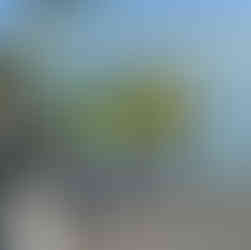Planting Seeds through Environmental Education
- Amulya Thota
- Jun 26, 2025
- 3 min read
This past Earth Day, I had the privilege of volunteering with KCCB at an elementary school event at Russo/McEntee Academy in San Jose. This experience showed me the importance of environmental education, especially for younger generations. Witnessing elementary school students engage with interactive and educational sustainability activities reminded me of the impact that early exposure to environmental concepts can have. It also reinforced a core belief I've developed through my PHIL 46: Social Justice and Sustainability class at Santa Clara University – environmental education shouldn't just be an elective; it should be a fundamental requirement.
SCU students Amulya Thota, Sophie Fowler, and Joseph Hayden; Double-crested cormorant at Hellyer County Park, photo by Amulya Thota.
In my Social Justice and Sustainability class, we dove into complex issues like climate change, resource depletion, and environmental justice. While theoretical knowledge is important, our class also emphasizes the importance of applying what we learn to real-world scenarios – which is where our placements come in. I selected Keep Coyote Creek Beautiful as mine, and it has been an incredibly rewarding experience through participating in activities like creek cleanups and BioBlitzes. These activities have made everything we learn in class feel real. Picking up trash from Coyote Creek or spotting wildlife during a BioBlitz shows me how local and personal these problems are. Seeing bags of garbage pulled out of the creek is very different from just reading about pollution in a book. It’s powerful to know that your effort, even a small one, can help protect animals and water quality. From the class readings, I’ve learned that these kinds of actions are part of caring for the Earth — a relationship that works both ways.
Watching the elementary students at the Earth Day event, full of curiosity and enthusiasm as they learned about different local species, and the organization, was incredibly inspiring and restored my hope and optimism in the younger generations. It reminded me that children naturally connect with the environment — they just need the chance. If we gave every student from kindergarten through college a strong environmental education that includes hands-on learning, we could help build a future where more people understand and care about the planet. The environmental problems we face today are serious – the World Bank says the world creates 2.01 billion tonnes of solid waste every year. That number shows just how much we need to rethink our habits and how we treat the planet. The best way to make lasting change is to teach younger generations about these issues and give them the tools to make a difference. Organizations like KCCB are already doing this important work.
There's a beautiful symmetry in connecting the environmental education of elementary students with that of college students. Just as my class has provided me with the historical knowledge and opportunities to engage in meaningful environmental action, early education can plant the seeds of environmental stewardship in younger students. By making environmental education a core interconnectedness with nature and is ready to build a more sustainable future.
Our planet provides us with everything we need to thrive, and it's a reciprocal relationship that demands our active participation and care. My experiences, both in the classroom and out volunteering with KCCB, have shown me that even seemingly small actions, when multiplied by many, can create an actual impact. Before taking this course, I, like countless others, might not have fully grasped how important our role is in caring for our shared planet. This highlights a crucial idea: environmental education shouldn't just be an option, but a universal right. By making it more accessible, we can encourage everyone to embrace their role in caring for our planet.
Kaza, Silpa, et al. What a Waste 2.0: A Global Snapshot of Solid Waste Management to 2050.
Urban Development Series, World Bank, 2018.












Comments